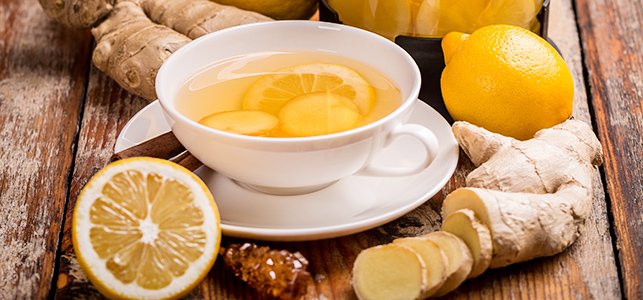“Everything good is found in ginger,” states an old Indian proverb. That’s why Ayurveda often refers to ginger as a universal medicine. Chinese medicine, the other most ancient yet living tradition, also turns to ginger medicinally because it restores Yang, or hot energy. Currently, India and China produce most of the world’s ginger because it grows best in warm, damp areas.
The aromatic, spicy root has long been used in both traditional and Western healing systems to make tea. Ginger tea brings with it a host of powerful health benefits.
Ginger Tea’s Healing Effects
Researchers say the active volatile oils and pungent phenol compounds, such as gingerols and shogaols, are what give ginger its power, according to the University of Maryland Medical Center. Tea made from ginger has high levels of vitamin C and amino acids, as well as various trace elements such as calcium, zinc, sodium, phosphorus, and many others.
Drinking ginger tea can:
Help the body absorb nutrients
Help alleviate the stomach pain
Help with irritable bowl syndrome
Help with weight loss
Help fight cancer
Help manage glucose levels
Improve circulation
Improve the food digestion
Increases the production of gastric juice
Protect against Alzheimer’s Disease
Open inflamed airways
Reduce arthritic inflammation
Relieve menstrual discomfort
Relieve stress
Stimulate appetite
Ayurveda also teaches that ginger tea has a powerful antispasmodic action, according to herbalist Dr. John R. Christopher.
Hi! I am a robot. I just upvoted you! I found similar content that readers might be interested in:
http://www.chopra.com/articles/the-health-benefits-of-ginger-tea